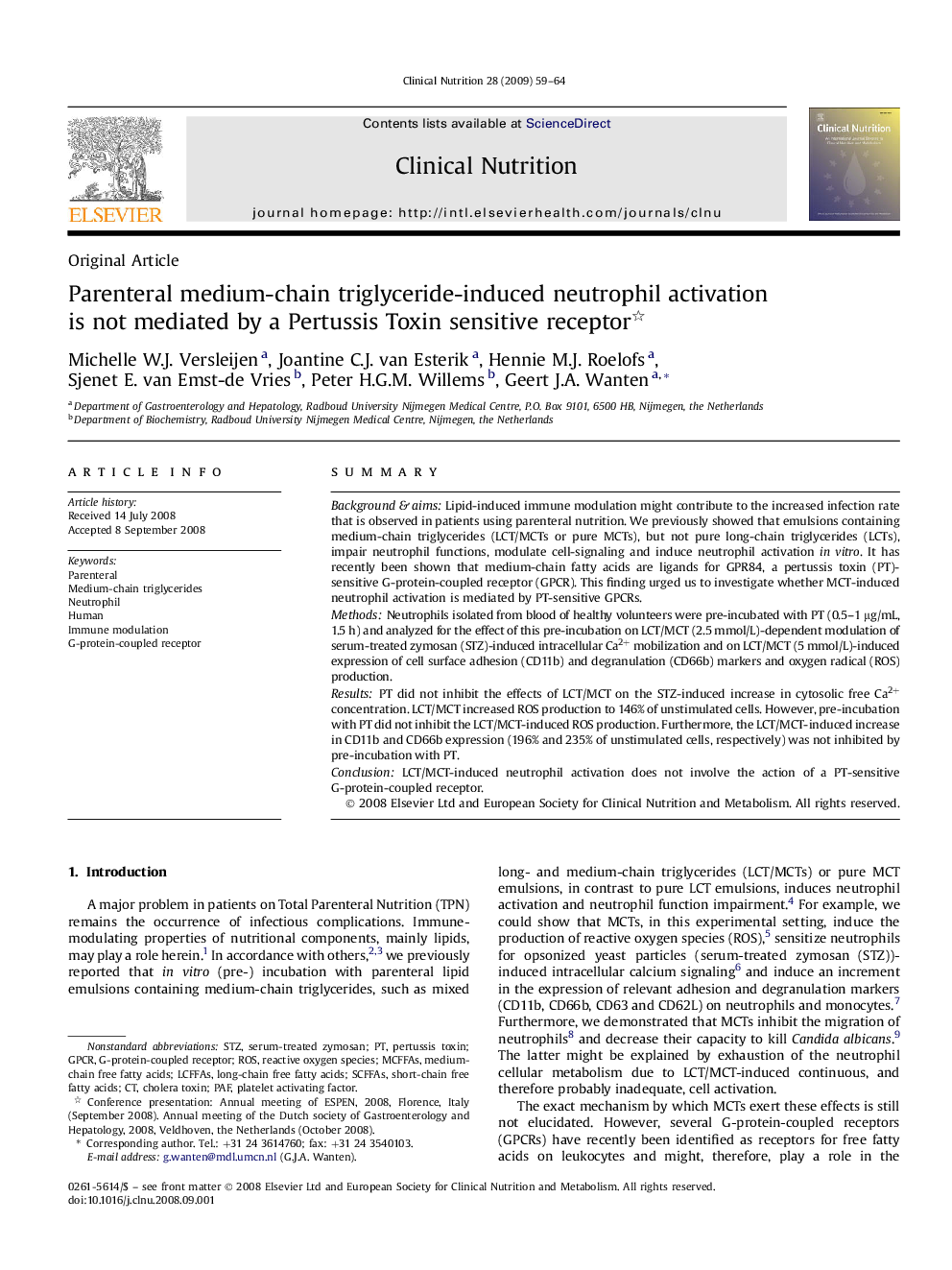| Article ID | Journal | Published Year | Pages | File Type |
|---|---|---|---|---|
| 2689942 | Clinical Nutrition | 2009 | 6 Pages |
SummaryBackground & aimsLipid-induced immune modulation might contribute to the increased infection rate that is observed in patients using parenteral nutrition. We previously showed that emulsions containing medium-chain triglycerides (LCT/MCTs or pure MCTs), but not pure long-chain triglycerides (LCTs), impair neutrophil functions, modulate cell-signaling and induce neutrophil activation in vitro. It has recently been shown that medium-chain fatty acids are ligands for GPR84, a pertussis toxin (PT)-sensitive G-protein-coupled receptor (GPCR). This finding urged us to investigate whether MCT-induced neutrophil activation is mediated by PT-sensitive GPCRs.MethodsNeutrophils isolated from blood of healthy volunteers were pre-incubated with PT (0.5–1 μg/mL, 1.5 h) and analyzed for the effect of this pre-incubation on LCT/MCT (2.5 mmol/L)-dependent modulation of serum-treated zymosan (STZ)-induced intracellular Ca2+ mobilization and on LCT/MCT (5 mmol/L)-induced expression of cell surface adhesion (CD11b) and degranulation (CD66b) markers and oxygen radical (ROS) production.ResultsPT did not inhibit the effects of LCT/MCT on the STZ-induced increase in cytosolic free Ca2+ concentration. LCT/MCT increased ROS production to 146% of unstimulated cells. However, pre-incubation with PT did not inhibit the LCT/MCT-induced ROS production. Furthermore, the LCT/MCT-induced increase in CD11b and CD66b expression (196% and 235% of unstimulated cells, respectively) was not inhibited by pre-incubation with PT.ConclusionLCT/MCT-induced neutrophil activation does not involve the action of a PT-sensitive G-protein-coupled receptor.
